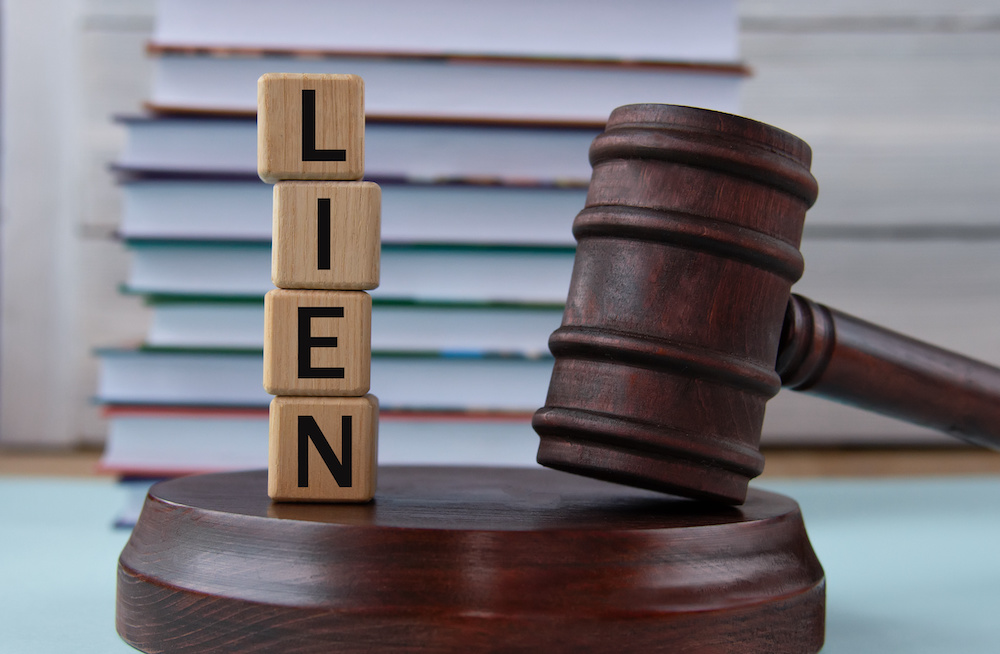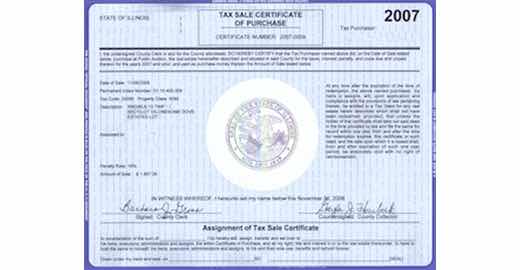All Categories
Featured
Table of Contents
Tax lien investing can give your profile direct exposure to realty all without needing to actually possess home. Experts, nevertheless, say the process is complicated and caution that beginner capitalists can quickly get burned. Right here's whatever you need to understand about investing in a tax obligation lien certificate, including exactly how it works and the threats included.
The notice commonly comes before harsher activities, such as a tax obligation levy, where the Internal Revenue Solution (INTERNAL REVENUE SERVICE) or regional or municipal federal governments can actually confiscate someone's residential property to recover the debt. A tax lien certification is created when a residential property proprietor has actually fallen short to pay their taxes and the regional government problems a tax lien.
Tax lien certifications are normally auctioned off to financiers looking to earnings. To recuperate the overdue tax obligation bucks, districts can after that sell the tax lien certificate to exclusive financiers, that care for the tax obligation expense for the right to collect that cash, plus passion, from the home owners when they at some point repay their balance.
What Is Tax Lien Certificate Investing
enable the transfer or project of delinquent property tax liens to the personal field, according to the National Tax Lien Association, a nonprofit that represents federal governments, institutional tax lien capitalists and servicers. Below's what the procedure appears like. Tax obligation lien investors need to bid for the certification in a public auction, and just how that procedure works depends on the specific municipality.
Call tax obligation authorities in your location to make inquiries just how those overdue tax obligations are accumulated. The municipality establishes an optimum rate, and the prospective buyer offering the most affordable passion rate below that maximum wins the public auction.
Various other winning proposals most likely to those who pay the highest money amount, or costs, above the lien amount. What occurs following for investors isn't something that happens on a supply exchange. The winning bidder needs to pay the entire tax costs, consisting of the delinquent financial obligation, rate of interest and fines. The capitalist has to wait till the residential property proprietors pay back their whole equilibrium unless they don't.
While some financiers can be rewarded, others may be caught in the crossfire of challenging regulations and loopholes, which in the worst of scenarios can result in hefty losses. From a mere profit point ofview, a lot of financiers make their money based on the tax obligation lien's rates of interest. Rates of interest vary and depend upon the territory or the state.
Revenues, nonetheless, don't constantly total up to returns that high throughout the bidding procedure. Ultimately, many tax liens purchased at public auction are cost rates between 3 percent and 7 percent nationally, according to Brad Westover, executive director of the National Tax Obligation Lien Organization. Prior to retiring, Richard Rampell, previously the primary executive of Rampell & Rampell, an accounting firm in Palm Coastline, Florida, experienced this firsthand.
How Does Investing In Tax Liens Work
After that big institutional investors, consisting of financial institutions, hedge funds and pension funds, chased those higher returns in public auctions around the country. The larger capitalists assisted bid down rate of interest rates, so Rampell's team wasn't making substantial cash any longer on liens.
Yet that seldom occurs: The tax obligations are typically paid before the redemption date. Liens additionally are initial eligible payment, even prior to home loans. However, tax liens have an expiration day, and a lienholder's right to foreclose on the residential property or to gather their financial investment ends at the very same time as the lien.
"Often it's 6 months after the redemption period," Musa claims. "Don't assume you can just get and ignore it." Individual capitalists that are taking into consideration investments in tax obligation liens should, most of all, do their research. Experts suggest preventing properties with ecological damage, such as one where a gasoline station disposed unsafe product.
Investing In Real Estate Tax Liens & Deeds
"You must really comprehend what you're buying," claims Richard Zimmerman, a companion at Berdon LLP, an accountancy company in New york city City. "Be conscious of what the building is, the community and values, so you do not buy a lien that you won't be able to collect." Would-be investors ought to also take a look at the home and all liens versus it, along with recent tax sales and price of comparable properties.
"Individuals get a listing of homes and do their due diligence weeks prior to a sale," Musa says. "Half the residential properties on the list may be gone since the taxes get paid.
Investing In Tax Liens Risks

Westover states 80 percent of tax obligation lien certificates are offered to members of the NTLA, and the company can frequently compare NTLA members with the appropriate institutional capitalists. That could make taking care of the procedure much easier, specifically for a newbie. While tax obligation lien financial investments can supply a generous return, know the great print, details and guidelines.
"But it's complicated. You need to recognize the details." Bankrate's added to an upgrade of this story.
Real estate tax liens are an investment niche that is ignored by most financiers. Investing in tax obligation liens can be a financially rewarding though relatively danger for those that are educated regarding realty. When people or businesses fail to pay their residential property taxes, the towns or other government bodies that are owed those tax obligations place liens versus the homes.
How Does Investing In Tax Liens Work
These insurance claims on security are likewise traded among capitalists who wish to generate above-average returns. Via this procedure, the town obtains its taxes and the financier gets the right to accumulate the amount due plus interest from the borrower. The procedure seldom ends with the capitalist seizing ownership of the property.
Liens are cost public auctions that occasionally entail bidding process wars. If you require to confiscate, there may be other liens versus the building that keep you from occupying. If you obtain the home, there may be unanticipated costs such as fixings or perhaps evicting the current owners. You can additionally invest indirectly by means of home lien funds.
It efficiently locks up the building and prevents its sale till the proprietor pays the tax obligations owed or the property is confiscated by the financial institution. When a landowner or property owner fails to pay the taxes on their property, the city or region in which the home is situated has the authority to position a lien on the home.
Building with a lien attached to it can not be marketed or re-financed till the taxes are paid and the lien is gotten rid of. When a lien is released, a tax lien certification is created by the town that shows the amount owed on the home plus any interest or penalties due.

It's approximated that an extra $328 billion of property taxes was analyzed throughout the U.S. in 2021. The fad proceeds. Tax obligations on single-family homes were estimated to rise a standard of 3.6% in 2022, to a total of $339.8 billion, and by 6.9% in 2023, to $363.3 billion. It's difficult to examine nationwide real estate tax lien numbers.
Latest Posts
Back Taxes Homes
Otc Tax Liens
Tax Defaulted Properties Sale